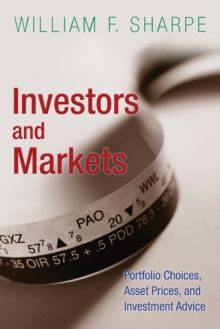
Description
Neoclassical Finance provides a concise and powerful account of the underlying principles of modern finance, drawing on a generation of theoretical and empirical advances in the field. Stephen Ross developed the no arbitrage principle, tying asset pricing to the simple proposition that there are no free lunches in financial markets, and jointly with John Cox he developed the related concept of risk-neutral pricing. In this book Ross makes a strong case that these concepts are the fundamental pillars of modern finance and, in particular, of market efficiency. In an efficient market prices reflect the information possessed by the market and, as a consequence, trading schemes using commonly available information to beat the market are doomed to fail.
By stark contrast, the currently popular stance offered by behavioral finance, fueled by a number of apparent anomalies in the financial markets, regards market prices as subject to the psychological whims of investors. But without any appeal to psychology, Ross shows that neoclassical theory provides a simple and rich explanation that resolves many of the anomalies on which behavioral finance has been fixated.
Based on the inaugural Princeton Lectures in Finance, sponsored by the Bendheim Center for Finance of Princeton University, this elegant book represents a major contribution to the ongoing debate on market efficiency, and serves as a useful primer on the fundamentals of finance for both scholars and practitioners.
Information
-
Download - Immediately Available
- Format:PDF
- Pages:120 pages
- Publisher:Princeton University Press
- Publication Date:11/04/2009
- Category:
- ISBN:9781400830206
Other Formats
- Hardback from £55.85
Information
-
Download - Immediately Available
- Format:PDF
- Pages:120 pages
- Publisher:Princeton University Press
- Publication Date:11/04/2009
- Category:
- ISBN:9781400830206










